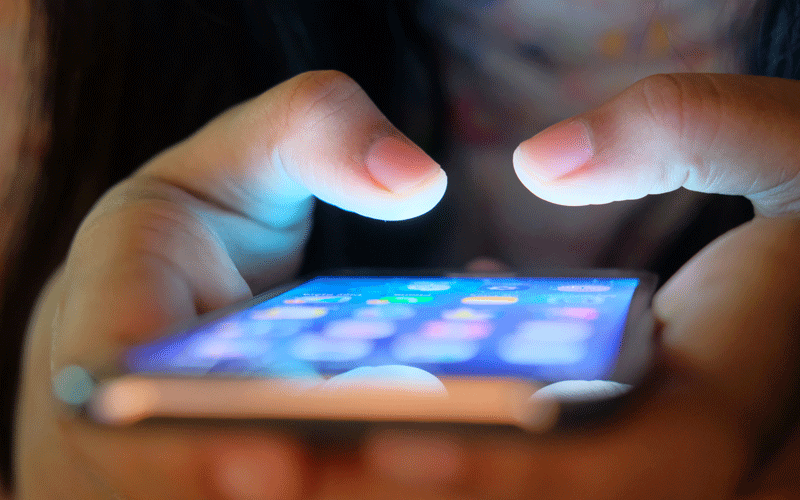Hostility, aggression online intensify in Covid-19 times

With restrictions in movement sending many to interact in digital spaces coupled with increased stress from the pandemic has exposed people to bullying, harrassment and daily negativity.
Jasmine Wambui
In today’s world, social media is being used by all age groups and is no longer a thing only common with the youth.
Covid-19 pandemic, especially presented the need to keep in touch with family, friends and colleagues virtually.
This need grew to such a great extent that several little-known online platforms such as Zoom and Google Meet, among others, became popular platforms just a few days after the lockdown was introduced in several countries worldwide.
The rush to touch base also saw tech and electronics companies growing massively as new mobile gadgets and applications were being purchased at a fast rate.
This, however, saw cases of cyberbullying going up because many people around the world were spending more time online and at home where there was little or no physical human interaction, which in the long run cause stress and anxiety.
Why hostility is rife online
Research shows that people who are experiencing stress and anxiety can unintentionally use hostility as a coping mechanism.
This can be manifested during online interactions through posts, comments, pictures, and videos.

Stress can lead many to develop self-preservation and self-defense behaviour, even more, when dealing with a crisis such as the pandemic.
Also, people engage in cyberbullying because they are bored, lonely, or want attention. And, because the pandemic has exacerbated these issues, this is also leading to an increase in hostile behaviour online.
“Just go through social media pages and a minute will not pass without seeing a mean post or comment.
From body shaming, spreading rumours and falsehoods and all manner of hurting posts…
You innocently post a picture, and some people camp in your comment section body shaming you, saying how fat you have grown during the pandemic, or forwarding that photo or making memes from it,” says Joan Wangechi, a social media user.
Ken Munyua, a psychologist, says bullying doesn’t just destroy people’s self-esteem. It can do much worse. Victims of cyberbullying are 1.9 times more likely to commit suicide.
What should one do? “Adults who find themselves being bullied should cut links and report to social media managers.
Do not attempt to answer to a cyber-bully because they have all the time and energy to waste that you may not have,” Munyua advises.
So, could you unknowingly be a low-key perpetrator or victim? Well, Cyberbullying is simply, bullying that takes place over digital devices.
It is repeated behaviour, aimed at scaring, angering or shaming those who are targeted.
It includes sending, posting, or sharing negative, harmful, false, or mean content about someone else. Some cyberbullying crosses the line into unlawful or criminal behaviour.
According to the Kenyan constitution of 2010, in the exercise of the right to freedom of expression, every person shall respect the rights and reputation of others.
So what constitutes cyberbullying? The Computer Misuse and Cyber Crimes Act, 2018 says in Section 27 that; A person who, individually or with other persons, willfully communicates, either directly or indirectly, with another person or anyone known to that person, commits an offense, if they know or ought to know that their conduct— is likely to cause those persons apprehension or fear of violence to them or damage or loss on that person’s property; or detrimentally affects that person; or is in whole or part, of an indecent or grossly offensive nature and affects the person.
A person who commits such an offense is liable, on conviction, to a fine not exceeding Sh20 million or to imprisonment for a term not exceeding 10 years, or to both.
According to Josephine Gachuru, advocate of the High Court of Kenya, Computer Misuse and Cyber Crimes Act protects individuals from various forms of unfavourable cyber communication.
“Practically, one can think of a plethora of situations that would squarely fall into the mentioned scenarios.
This is because the provision is not clear and does not specifically provide for the actual conduct that would deem a person having committed the said criminal offense, without leaving a lot of room for assumptions,” she says.
Be careful
This explains why cyberbullying and hate speech cases are easily thrown out of court proceedings.
Handling the matter in court is not as clear as expected because one would not know to what extent a victim has been affected by the perpetrator’s words.
“If read in tandem with the Constitution in Section 33, one would conclude that a situation of cyberbullying would arise when one can show damage to reputation.
Further, the constitution also posits instances of amongst others, hate speech, incitement to violence, ethnic incitement and discrimination, which would justify an instance of cyberbullying,” adds Gachuru.
With that being said, he advises Kenyans to be careful when having conversations online.
They should be gentle and kind to one another because you never know what one is already dealing with emotionally prior to being attacked by a random keyboard warrior.
If the victim is already dealing with emotional and mental health complications and is probably in the process of receiving medical attention and your conversation further triggers them, what may have seemed as a `simple’ reply may land you in jail if the victim says that you bullied them in one way or another.












